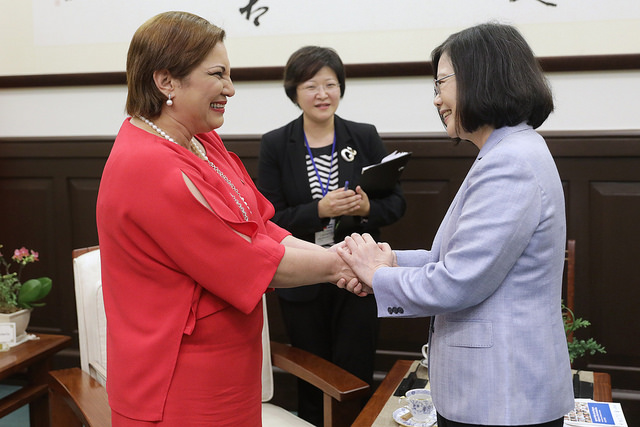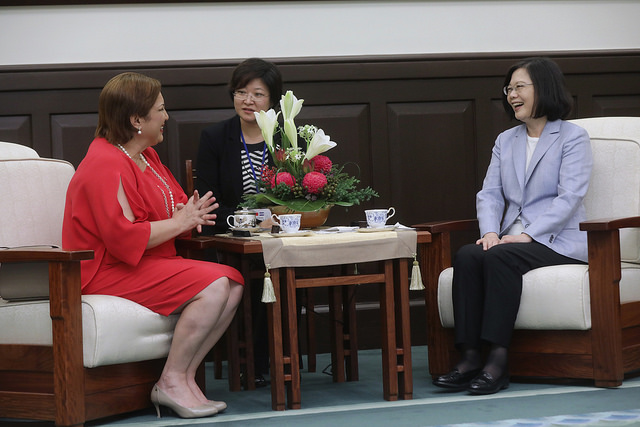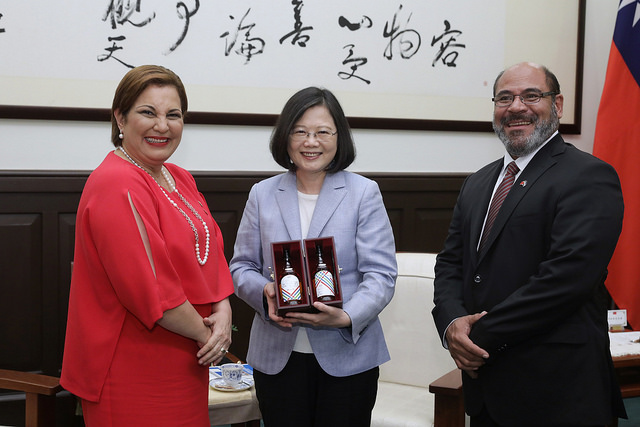News & activities
 News releases
News releases
On the afternoon of October 10, President Tsai Ing-wen met with a delegation from the Republic of Honduras led by Second Vice President Ava Rossana Guevara Pinto and her husband Julio Cesar Gonzalez Cordova. On behalf of the government, President Tsai welcomed the visitors to Taiwan to celebrate our national day together with the people of Taiwan. She also expressed hope that they will continue to support Taiwan's participation in international organizations, and continue seeking to enhance bilateral exchanges and cooperation in a spirit of "steadfast diplomacy and mutual assistance for mutual benefits."
In remarks, President Tsai noted that Honduras was the first stop on her trip to Central America in early 2017, and that her visit was a success. She also thanked Vice President Guevara for seeing her off at the airport, and said she was happy to meet the vice president once again.
President Tsai pointed out that she has met with Honduran President Juan Orlando Hernandez on several occasions since taking office in 2016, and Vice President Guevara visited Taiwan for the first time to celebrate our national day with the people of Taiwan, which will further enhance the bilateral friendship.
President Tsai mentioned that Vice President Guevara is a valued associate of President Hernandez, and spent quite a few years in journalism before going on to serve as an ambassador to several different countries. In recent years, led by President Hernandez, the Honduran economy's strong performance and the nation's progress on many fronts have been widely noted, and Vice President Guevara has been an important contributor to this success.
President Tsai stated that in recent years, acting upon the principles of cooperation and mutual benefit, Taiwan has steadily increased its imports of high-quality agricultural products from Honduras. In addition to traditional items such as coffee and beef, we may also start importing muskmelons this year, and avocados at some point in the future. In addition, plans are being made to adjust the quota for refined sugar imports. Most of these trade items are the result of the cooperation between Taiwan's technical mission in Honduras and local farmers, said the president, adding that this shows what can be accomplished when we act in accordance with the principle of "steadfast diplomacy and mutual assistance for mutual benefits."
Noting that the most recent session of the United Nations General Assembly had just concluded this past September, President Tsai took the opportunity to thank Honduras for sending a letter to the UN Secretary General to express support for Taiwan's participation in the UN system, and said she hopes that Honduras will continue to lend its full support for Taiwan's international participation.
And finally, President Tsai once again welcomed Vice President Guevara and her accompanying delegation to Taiwan, and expressed her wish for the continued prosperity of both countries, and a lasting friendship.











